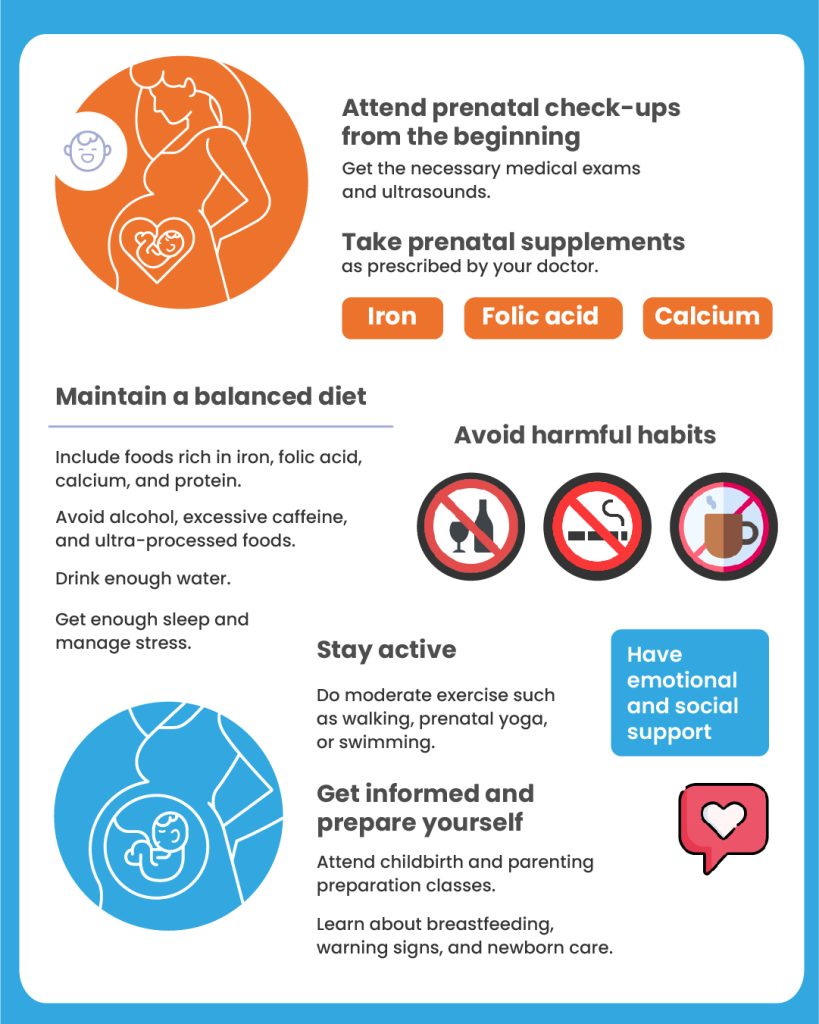Let’s Celebrate Health in Every Stage of Life
World Health Day is celebrated on April 7 and serves as a reminder that health is not only the absence of disease but also the achievement of complete well-being.
What is the World Health Organization’s focus for 2025?
This year’s theme is “Healthy Beginnings, Hopeful Futures,” highlighting the importance of maternal and newborn health. This year-long campaign aims to intensify global efforts to eliminate preventable deaths among mothers and newborns, and to prioritize the long-term well-being of women.
Why is it important to care for maternal and neonatal health?
Health during pregnancy, childbirth, and the postpartum period is crucial to prevent complications that may affect both mother and baby. A healthy start is essential for a newborn’s optimal development and for the mother’s recovery and overall well-being.
How can we promote a healthy pregnancy?
- Regular prenatal care:
Attend regular checkups to monitor the pregnancy’s progress and detect potential complications early. - Balanced nutrition:
Eat a diet rich in essential nutrients to support the mother’s health and the baby’s development. - Avoid harmful substances:
Stay away from alcohol, tobacco, and other drugs that can harm the fetus. - Education about childbirth and parenting:
Take classes or attend workshops to prepare for labor and gain tools to care for a newborn. - Emotional and social support:
Seek support networks — family, friends, or community groups — that offer assistance and emotional care during and after pregnancy.

Why is it important to care for a mother’s mental health during and after pregnancy?
During pregnancy, not only does the body go through major changes, but the mind and emotions also experience a deep transformation. Taking care of mental health during this time is essential for both the mother’s well-being and the baby’s healthy development.
Strong emotional health helps mothers experience a calmer, more enjoyable pregnancy, strengthens the mother-baby bond, and lowers the risk of complications both during and after pregnancy.
How does a mother’s emotional state affect her baby?
Chronic stress, anxiety, or untreated depression can negatively impact fetal development. When a mother constantly feels overwhelmed or sad, her body releases stress hormones such as cortisol, which may affect the baby’s growth and nervous system. This can increase the risk of premature birth, low birth weight, or future emotional difficulties for the child.
Preventing postpartum disorders
Taking care of one’s emotional well-being during pregnancy also helps prevent postpartum depression and other mood disorders. Identifying and addressing emotional symptoms early can keep them from worsening after childbirth. A mentally well mother will also find it easier to form a strong and healthy bond with her baby.
Caring for the mind is caring for life.
Mental health during pregnancy deserves the same attention as physical health. If you’re pregnant or supporting someone who is, remember: asking for help is also an act of love.
Fun facts about World Health Day
World Health Day is celebrated every April 7. This date was established by the World Health Organization (WHO) in 1948 to commemorate the founding of the WHO and to raise awareness about global health issues and the importance of maintaining good health.
